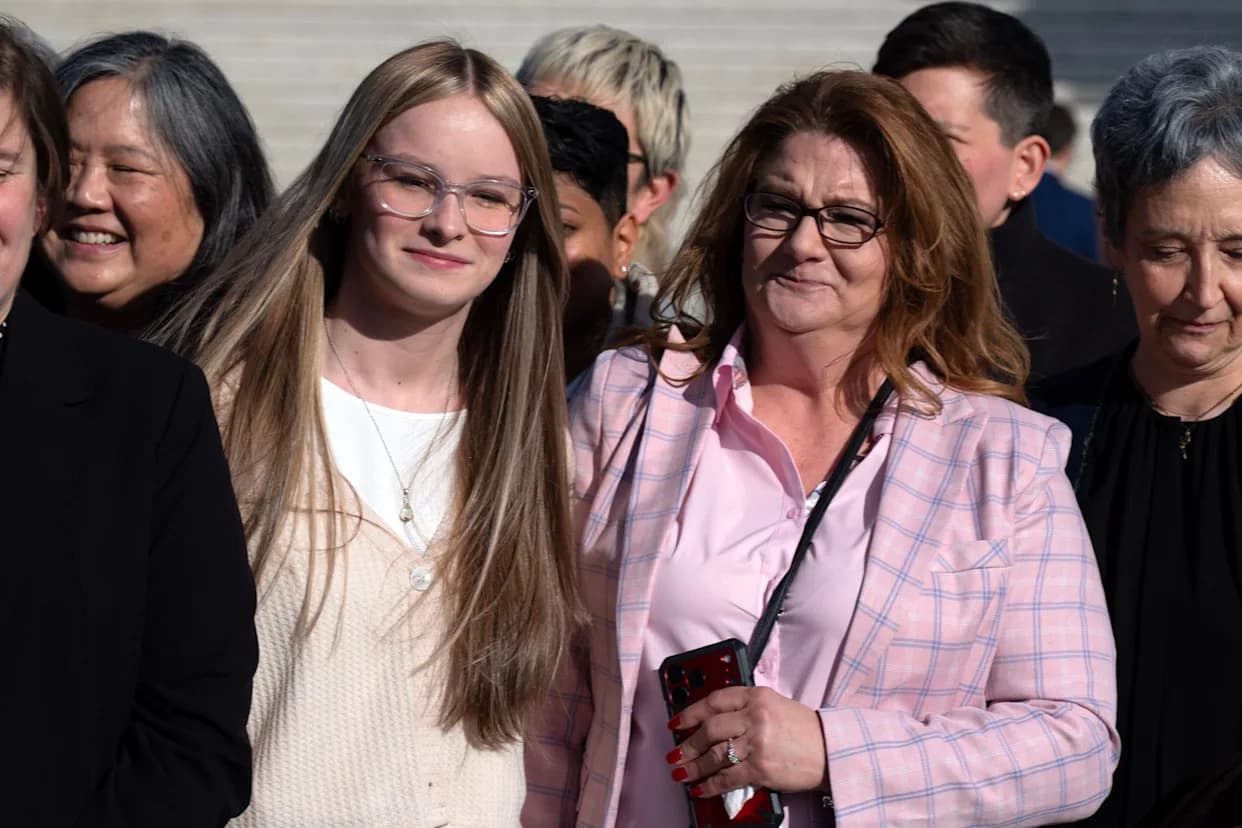The Supreme Court on Monday declined to hear an appeal seeking to overturn its 2015 Obergefell v. Hodges decision that legalized same‑sex marriage nationwide. The appeal, brought by former Kentucky clerk Kim Davis, challenged a lower‑court order requiring her to pay about $360,000 to a couple denied a license. The justices issued no opinion, leaving the 2015 ruling in place while debate among some justices over overturning precedent continues.
Supreme Court Declines to Revisit Same‑Sex Marriage Ruling, Turns Away Kim Davis Appeal
Supreme Court declines to revisit same‑sex marriage ruling
The Supreme Court on Monday refused to take up an appeal seeking to overturn its 2015 decision in Obergefell v. Hodges, which legalized same‑sex marriage nationwide. The justices issued a brief order declining review and offered no separate opinion or explanation.
The appeal was brought by Kim Davis, the former Rowan County, Kentucky, clerk who declined to issue marriage licenses to same‑sex couples after the high court's ruling. Davis asked the Court to overturn a lower‑court judgment that ordered her to pay approximately $360,000 in damages and attorneys' fees to a couple who were denied a license.
Davis's lawyers repeatedly invoked language from Justice Clarence Thomas, who is the lone current justice to call for erasing the Obergefell decision. Thomas was one of four dissenters in 2015; Chief Justice John Roberts and Justice Samuel Alito were the other two dissenters who remain on the Court today.
Roberts has not publicly revisited the matter since issuing his 2015 dissent. Alito has continued to criticize the ruling but recently said he is not actively advocating for its reversal. Justice Amy Coney Barrett, who was not on the Court in 2015, has said the Court should sometimes correct prior mistakes—citing the 2022 decision that ended a federal constitutional right to abortion—but she has also observed that Obergefell involves reliance interests for married couples and families.
Kelley Robinson, president of the Human Rights Campaign, praised the justices' decision not to intervene.
"The Supreme Court made clear today that refusing to respect the constitutional rights of others does not come without consequences," Robinson said.
Davis became a national figure after she refused to issue licenses to same‑sex couples in eastern Kentucky on religious grounds and repeatedly defied court orders. In September 2015 a federal judge jailed her for contempt; she was released after her staff issued the licenses on her behalf and removed her name from the forms. The Kentucky legislature later enacted a law removing county clerks' names from state marriage certificates. Davis lost a bid for re‑election in 2018.
By declining to hear the appeal, the Court left Obergefell intact for now. The episode underscores continuing divisions among justices about when the Court should overturn prior precedents, even as the immediate legal challenge to same‑sex marriage remains unresolved.
Help us improve.


































